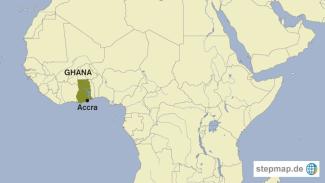Fight for survival
Underage “okada” riders in Ghana

The laws of Ghana permit individuals of 18 years and older to drive or operate a vehicle like a motorcycle. Underage youth males, pushed by hardships, are finding a way to defy the law and operate as okada riders in many parts of Ghana. Commercial motorcycle taxi business is very popular in many African cities because the public transport systems are often unreliable and poorly maintained. This is amongst others due to rapid urbanisation and associated growth without a corresponding growth in transportation infrastructure.
Many young Ghanaians learn how to ride an okada from friends and other informal settings. There are no driving schools for such riders. Moreover, many people are choosing to buy the bikes and offer them to riders as a side business.
17-year-old Augustine Amankwaah lost his father at an early age. In 2022, his mother who was paying his school fees also passed away. Since he had not yet completed school and had gained no skills, he chose to work as a commercial motorcycle rider. “I dropped out of school in grade 9 after my mother died this year. I have six adult siblings,” he says.
“As a last born, I found myself alone. None of my siblings are ready to take care of me, so I had to find means to survive,” Amankwaah explains. He sometimes must use his meagre savings to support one of his elder sisters in Bono region who is unemployed and yet has a 4-year-old child.
The commercial motorcycle taxi business has many risks. Okada riders ignore traffic laws such as stopping at red signals. As such, many are involved in road accidents. The motorcycles are also sought after by thieves and fraudsters who pretend to be customers and rob the riders of the bike and other precious belongings. Some riders have even been killed, especially by late night customers.
The involvement of underage children in this high-risk business is raising concern among many Ghanaian rights advocates. Moreover, the Road Traffic Regulations 2012 of Ghana prohibit the use of motorcycles and three wheelers for commercial activities. However, there has been a blatant disregard for this regulation for many years, mainly due to challenges in enforcement and difficulty in distinguishing private from commercial use.
16-year-old Emmanuel Nantakyi Boateng is another young Ghanaian who operates an okada in Sankore, western Ghana. He argues that whereas their involvement in the business breaks law, economic and social realities leave them no choice. “Our earnings have been affected by the recent hike in prices of petrol. But I still earn a monthly salary from the owner of the motorcycle I ride,” he says.
Young boys like Amankwaah and Boateng cannot afford to buy their own motorcycles and therefore work as riders for hire. At the end of each day, they give a quota of their earnings to their patrons. Amankwaah gets a salary of 300 cedis (about € 36) from the okada owner at the end of the month. “I work from 6 o’clock in the morning to 9 o’clock in the evening, Monday to Saturday. It was really a good job before hikes in the fuel prices. Despite that, I still need to do it to earn a living,” Amankwaah says.
Bright Boateng is a Ghanaian writer and teacher at Wesley University College of Education in Kumasi.
brightboateng569@gmail.com












